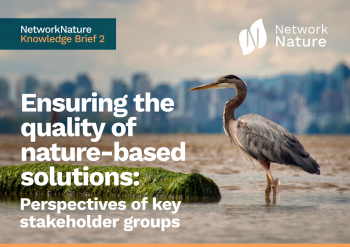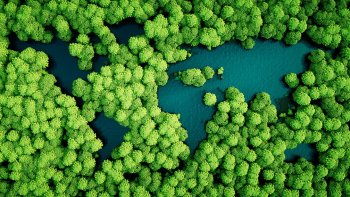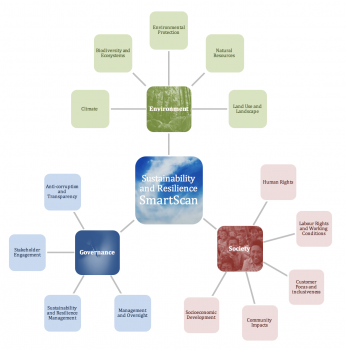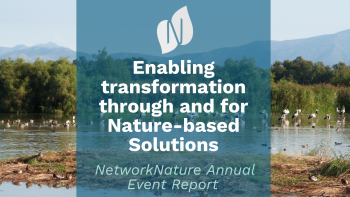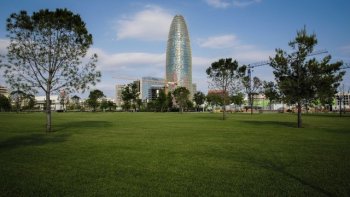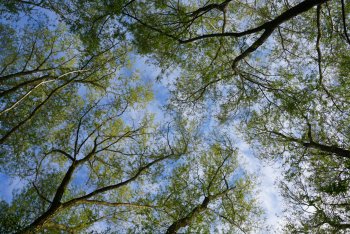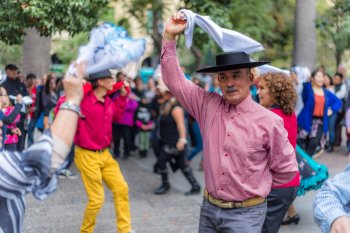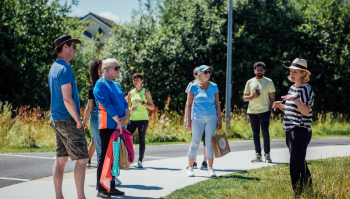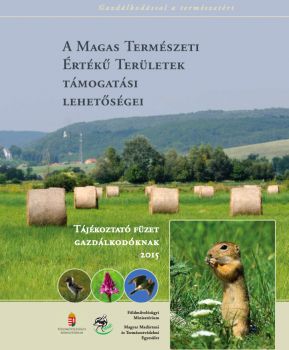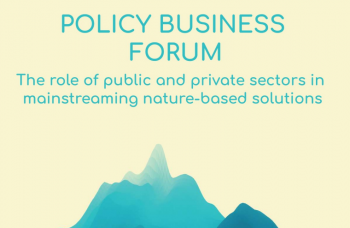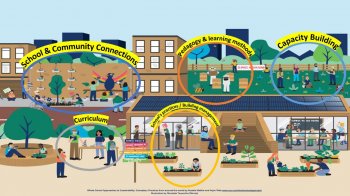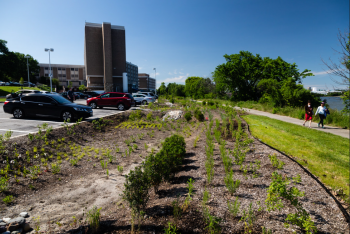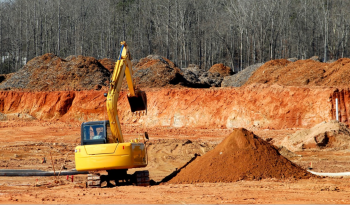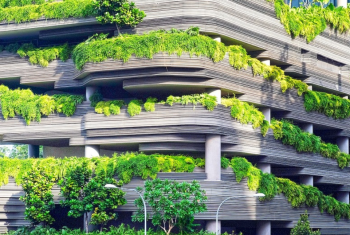NetworkNature Knowledge Brief 2: Ensuring the quality of nature-based solutions - perspectives of key stakeholder groups
This Knowledge Brief produced by NetworkNature aims to explore and analyse different perspectives and perceptions of high-quality nature-based solutions (NbS). The brief provides an overview from key stakeholder groups and draws recommendations for practitioners and policy-makers on how to ensure
ÁLTALÁNOS: Természetalapú Megoldások: Lehetőség a változtatásra - esély a változásra
Az információs füzet közérthetően mutatja be a TAM fogalmát, a kapcsolódó elméleti és szakpolitikai hátteret, emellett jó példákon, bevált gyakorlatokon keresztül inspirációt is nyújt a TAM alkalmazásához. A kiadványt a Külgazdasági és Külügyminisztérium megbízásából az Interreg V-A Románia-
GIB SmartScan
Increase your infrastructure project’s attractiveness to investors in only a few steps. The GIB SmartScan allows you to assess your infrastructure projects based on its Environmental, Social and Governance (ESG) issues and helps to efficiently flag risks and opportunities for improvements of your
NetworkNature Annual Event Report 2023: Enabling transformation through and for Nature-based Solutions
The report summarises the key outcomes of the NetworkNature Annual Event 2023 “Enabling transformation through and for Nature-based Solutions”, which took place on 8th June 2023, at the Flagey Building in Brussels and brought together more than 150 participants to discuss the transformative nature
- Document
Sharing-profits methodology for community forest arrangement
The PRI.FOR.MAN Project aimed to refine profit-sharing methodology for community forest management, ensuring fair timber profits for each owner.
The Green Divide
The Green Divide is an interactive documentary about the impact of greening and redevelopment plans on neighborhoods in six cities across Europe and North America. Through texts, maps and video testimonials, the online platform provides a deeper understanding of contemporary urban dynamics from the
Conexus key learning factsheet series - Supporting Nature-based Solutions via Nature-Based Thinking
In response to critiques of Nature-based Solutions (NbS), we propose a holistic and systemic approach: Nature-Based Thinking (NBT). NBT emphasizes the inspiration from nature to foster sustainable urban development and conceives nature to be intertwined with people. NBT will engage local actors,
Conexus Life-Lab factsheet series - Monitoring of socio-environmental services of urban green spaces
In recent years, the City of Barcelona has demonstrated its intention of increasing and improving greenery and biodiversity at the service of citizens through a series of policies, plans, measures, and other initiatives. In this pilot, the social and environmental services provided by urban green
- Document
A Comprehensive Overview of Nature-Based Solutions
The term Nature-Based Solutions (NBS) comprises various approaches that address social and environmental challenges in a way that is beneficial to both biodiversity and human well-being. To establish a common understanding of the NBS concept among all stakeholders in the ENABLS project, this
T2.3a Report: Academic paper on NBT within future planning and management of cities
The report presents the development of Nature Based Thinking (NBT) with an emphasis of future planning within cities through a reflective process that was led by SLU, UdL, USFD and TUM in Task 2.3 and resulted in the joint writing of a paper entitled: “Supporting Nature-based Solutions via Nature
- Document
Index of Biodiversity Potential (IBP): a practical tool for forest managers
The Index of Biodiversity Potential (IBP), designed to integrate ordinary taxonomic biodiversity into routine forest management. A composite indicator that influence the ability of forest stands to support various species
Seedbed Intervention Images
Do you want to feel the full experience of our recent Seedbed Interventions in the Seed Cities of Burgas, Limerick, Lahti, Umea, Tallinn and Versailles? Fear not. You can see for yourself in this gallery of imagery from the interventions. Publication Date: 03 Feb 2023 Author(s): City of
Interlace Stakeholder Engagement Strategy
Stakeholder engagement is a central element of the INTERLACE project as it aims to co-produce tools, governance instruments and other project deliverables with local stakeholders, as well as facilitate knowledge exchange between local, regional and global stakeholders, to inform and support the
- Document
Cookbook on virtual and physical interactive exchange formats for cities (EN/ES)
Lessons learned from the city pairings process (T4.2) will be collected and published by CA and UNGL in a cookbook format to support further effective exchanges between INTERLACE cities, as well as beyond the project.
MEZŐGAZDASÁG: Tudástár a természetkímélő gazdálkodás témakörében
A közzétett tudásanyagokat a Natura 2000 hálózat égisze alatt publikálta a Magyar Madártani és Természetvédő Egyesület (MME) a természetkímélő gazdálkodás témakörében. Az MME célja a madarak védelmével hozzájárulni az emberi életminőség és a biológiai sokféleség megőrzéséhez Magyarországon.
The role of public and private sectors in mainstreaming nature-based solutions - PBF 19 April 2021
The Policy Business Forum (PBF) consists of Nature-based Solutions (NbS) experts and knowledgeable stakeholders at the international, European, and national scale. The main aim of the PBF is to explore innovative ways to strengthen the science-policy-business nexus in order to exploit opportunities
Schools as Innovation Hubs for the Green Transition: Transforming schools into NBS Living Labs
What does it mean for a school to be an innovation hub? These slides from NBS EduWORLD project can give you a better idea!
ZÖLD-KÉK INFRASTRUKTÚRA: Zöldinfrastruktúra-hálózat fejlesztés
A Földművelésügyi Minisztérium megbízásából készült 2 kötetes, részletes összefoglaló a zöldinfrastruktúráról. A szöveg rámutat, hogy a zöldinfrastruktúra fogalma nem egységes, intézményenként, szabályozó szervenként, országonként eltér. Az anyag tematikusan részletezi a vonatkozó nemzetközi és
ZÖLD-KÉK INFRASTRUKTÚRA: Kedvezményezetti találkozó az építésügyről és településfejlesztésről
2019. decemberében megtartott kedvezményezetti találkozó prezentációs anyagai, többek között az ITM, BME, Miniszterlenökség, Lechner Tudásközpont, MUT, Budapest XII. és XIII. kerületi előadók bemutatásában.
ZÖLD-KÉK INFRASTRUKTÚRA: Innovatív és hatékony megoldások zöldfelületek menedzseléséhez
A kézikönyv esettanulmányok segítségével mutatja be az URBAN GREEN BELTS (UGB) - Városi zöldövezetek projekt során megvalósított tevékenységeket. A projektpartnerek által megszerzett ismeretek és tapasztalatok alapján összegyűjtött tudásanyag a gyakorlatba is beépíthető, sokoldalú eszköz- és
- ‹ previous
- 3 of 20
- next ›

